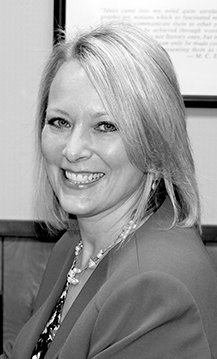U.S. John McCain will be buried today in the U.S. Naval Academy cemetery at Annapolis, Md., following a private memorial service. This marks a week of activities mourning the war hero and long-time public servant.
McCain served as a senator from Arizona from 1987 until his death Aug. 25. He previously served two terms in the U.S. House of Representatives and was the Republican nominee for President of the United States in the 2008. McCain was conservative but he was known for working across party lines.
That was his political life. He had another career.
McCain graduated from the Naval Academy in 1958 and was commissioned into the Navy. He became an aviator and was almost killed during the Vietnam War in the 1967 USS Forrestal fire. While on a bombing mission during Operation Rolling Thunder over Hanoi in October 1967, he was shot down, seriously injured, and captured by the North Vietnamese. McCain was a prisoner of war for more than five years. He was tortured and the wounds that he sustained during the war left him with lifelong physical disabilities. He retired from the Navy as a captain in 1981 and moved to Arizona, where he entered politics in 1982.
McCain was diagnosed with brain cancer in 2017.
That is a brief recap of a distinguished life of public service.
So, here is a guy who was almost killed in a fire; shot down and held a prisoner of war for five-plus years; sustained physical ailments that plagued him for life; lost a presidential race; and developed brain cancer which led to his death. That is a lot of bad stuff.
If you haven’t read in full McCain’s farewell letter to the American people, I hope that you will. It can be found in its entirety via your favorite Internet search engine. Or at this link: https://www.bloomberg.com/news/articles/2018-08-27/text-of-farewell-statement-from-sen-mccain-before-his-death.
I won’t quote the letter at length but I do want to hone in on a couple of paragraphs.
“I have often observed that I am the luckiest person on earth,” McCain wrote. “I feel that way even now as I prepare for the end of my life. I have loved my life, all of it. I have had experiences, adventures and friendships enough for ten satisfying lives, and I am so thankful. Like most people, I have regrets. But I would not trade a day of my life, in good or bad times, for the best day of anyone else’s.”
Wow. I found those words profound — and inspiring. After everything that happened to him, McCain felt lucky and was thankful. He lived a life of gratitude and was optimistic, even in these tumultuous political times.
“Do not despair of our present difficulties but believe always in the promise and greatness of America, because nothing is inevitable here. Americans never quit. We never surrender. We never hide from history. We make history.”
Amen.
Robert Emmons of the University of California has studied the benefits of gratitude for years and has said that “the practice of gratitude can increase happiness levels by around 25 percent.” Listing why we are grateful requires that we see the good in the world and contemplate the origins of what is good.
“This cuts to the very heart of my definition of gratitude, which has two components. First, it’s an affirmation of goodness. We affirm that there are good things in the world, gifts and benefits we’ve received. This doesn’t mean that life is perfect; it doesn’t ignore complaints, burdens, and hassles. But when we look at life as a whole, gratitude encourages us to identify some amount of goodness in our life,” Emmons said.
He added, “The second part of gratitude is figuring out where that goodness comes from. We recognize the sources of this goodness as being outside of ourselves. It didn’t stem from anything we necessarily did ourselves in which we might take pride. We can appreciate positive traits in ourselves, but I think true gratitude involves a humble dependence on others: We acknowledge that other people—or even higher powers, if you’re of a spiritual mindset—gave us many gifts, big and small, to help us achieve the goodness in our lives.”
He said gratitude makes us appreciate the value of something, and when we appreciate the value of something, we receive more benefits from it and are less likely to take it for granted. “In effect, I think gratitude allows us to participate more in life,” he said. “We notice the positives more, and that magnifies the pleasures you get from life. Instead of adapting to goodness, we celebrate goodness. We spend so much time watching things—movies, computer screens, sports—but with gratitude we become greater participants in our lives as opposed to spectators.”
How lucky are you? Do you feel and express gratitude? Are you watching — a spectator in your life? Or are you a participant?
I think John McCain understood the value of gratitude. He was no spectator. Rest in peace, sir. You may have been lucky, but America was more lucky to have you.
Shea Wilson is the former managing editor of the El Dorado News-Times. Email her at [email protected]. Follow her on Twitter @sheawilson7.
